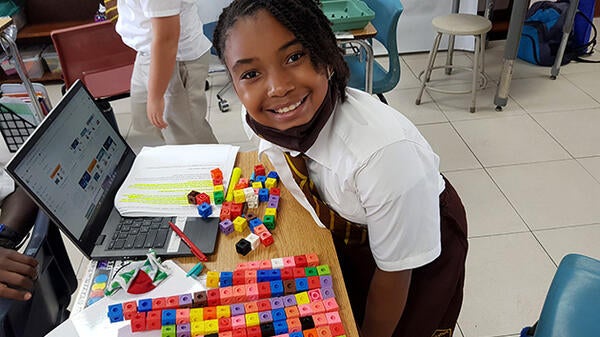On October 12 and 13, BIOS debuted a new classroom education module focused on the water cycle and weather in Lisa Siese’s P6 classroom at Somerset Primary. The module is part of the Institute’s Curriculum Enrichment Program, which is designed to enhance science, technology, education, and mathematics (STEM) instruction in local classrooms by bringing immersive experiences and hands-on activities to teachers and students.
Canadian Associates of BIOS Celebrates 45 Years
October 28, 2020
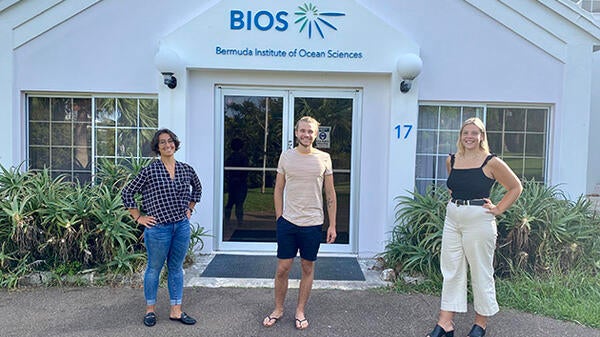
The Canadian Associates of BIOS (CABIOS) was founded in 1975 by the late Dr. Earlston Doe, a former BIOS Life Trustee and Bermuda-born Canadian oceanographer to honor the memory of his youngest son Learmont “Leary” Doe. The program was established to provide support for Canadian students, as well as students studying at Canadian universities and colleges, to participate in BIOS educational programs and research internships.
Making Waves on the High Seas
October 28, 2020
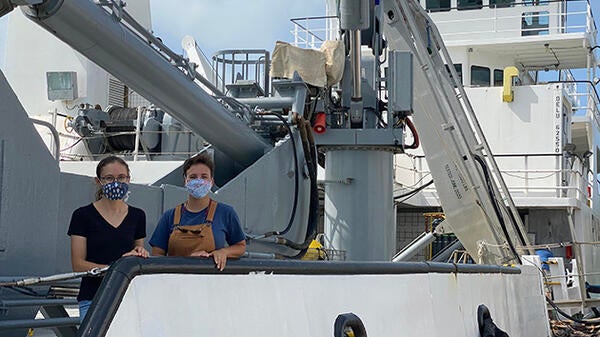
In early August, BIOS welcomed two new members to its Ship Operations Department—Ella Cedarholm and Lydia Sgouros—both marine technicians aboard the Institute’s 170-foot (52 meter) research vessel (R/V) Atlantic Explorer.
Mangroves, Microbes, and Greenhouse Gases
October 28, 2020
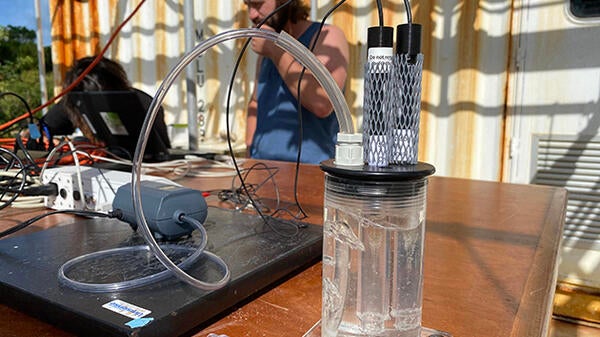
For five weeks spanning October and early November, Brett Jameson, a doctoral candidate at the University of Victoria in British Columbia, Canada, is working with BIOS biogeochemical oceanographer Damian Grundle on a project investigating the microbial production of nitrous oxide (N2O) in low oxygen marine environments.
Virtual Public Launch of the Bermuda Ocean Prosperity Programme
September 30, 2020
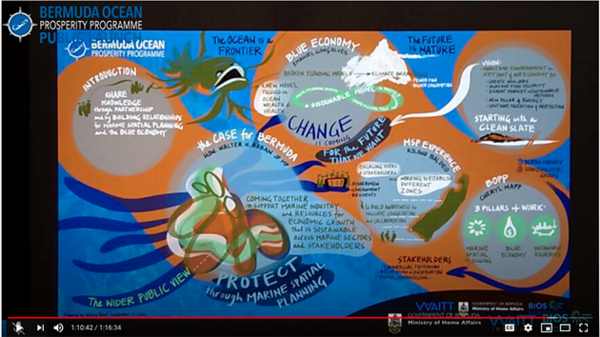
The Bermuda Ocean Prosperity Programme (BOPP) believes the ocean is an important component in Bermuda’s recovery from the pandemic and it offers an abundance of opportunities to grow a healthy economy that benefits all. BOPP is working to create a comprehensive plan to sustainably use, manage, and protect the ocean, a plan which will help the economy and ensure healthy fisheries and marine ecosystems for future generations. But we can’t do it without your help.
21 Students in Largest Single Summer Internship Cohort
September 30, 2020
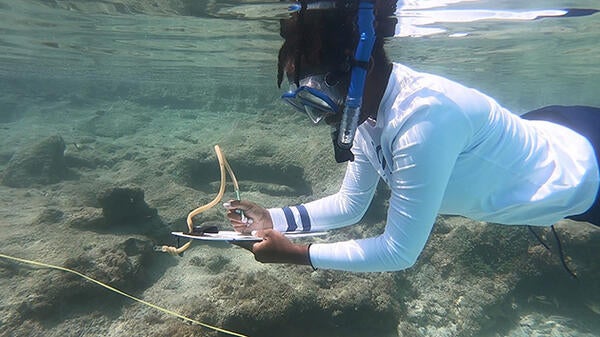
Summer internships for college-aged students were among the educational experiences that were hardest hit by the COVID-19 pandemic. As college campuses around the world shut down, students missed out on opportunities to gain skills in non-classroom settings, network with professionals and mentors, and explore potential career fields.
BIOS Welcomes Fall Undergraduate Interns
September 30, 2020
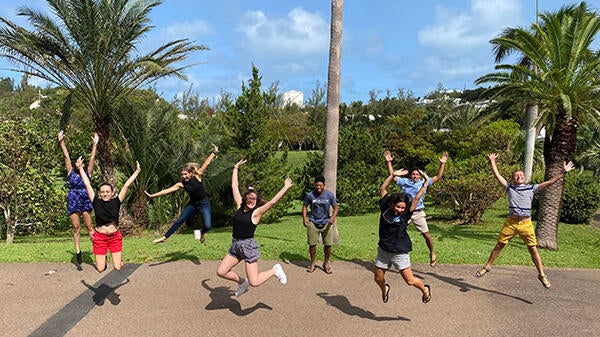
Although fall semester courses at BIOS had to be cancelled due to the COVID-19 pandemic, the Institute’s University Programs department worked diligently over the summer months to ensure the annual Research Experiences for Undergraduates (REU) program, funded by the National Science Foundation (NSF), could still take place.
Shedding Light on Coral Reefs
September 30, 2020
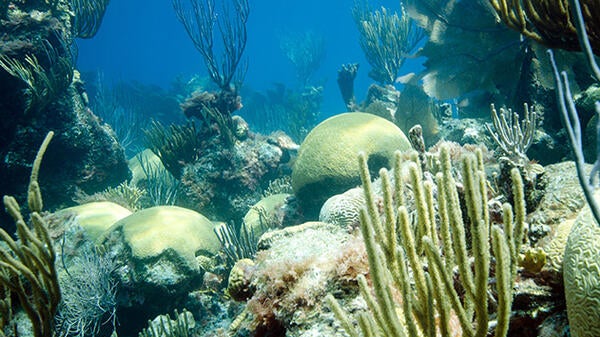
Earlier this year, BIOS senior scientist and coral reef ecologist Eric Hochberg published a paper in the journal Coral Reefs that put numbers to a widely accepted concept in reef science: that materials in seawater (such as phytoplankton, organic matter, or suspended sediment) can affect how much light, as well as the wavelength of light, reaches the seafloor. This, in turn, impacts the ecology of organisms, including corals and algae, that live on the seafloor and rely on that light for photosynthesis.
BIOS Unveils Citizen Science Initiative
September 30, 2020

This September, BIOS is debuting a new citizen science program designed to encourage Bermuda’s residents and visitors to engage with the natural environment by collecting data from around the island. By utilizing an array of online tools and apps, and working alongside BIOS educators, people have the opportunity to directly contribute to ongoing research at BIOS and local conservation efforts.
Local Student Selected to Attend Virtual Coding Camp
August 31, 2020
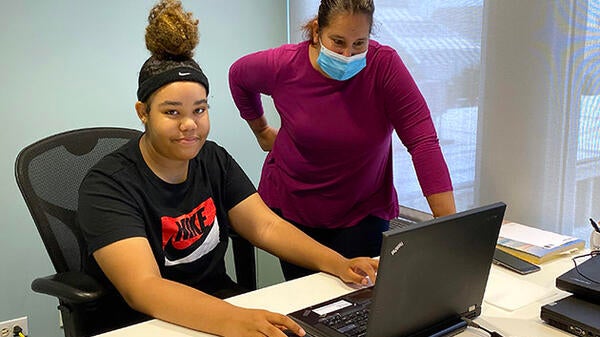
Priel Minors, 16, a senior school student at Cedarbridge Academy, was chosen by educators at the Bermuda Institute of Ocean Sciences (BIOS) and ConnecTech, to participate in a weeklong “BioCoding at Home” course offered virtually by the Cold Spring Harbor Laboratory’s DNA Learning Center. BIOS’s Ocean Academy provided a scholarship to cover the cost of the course while ConnecTech provided work space and coding support.
